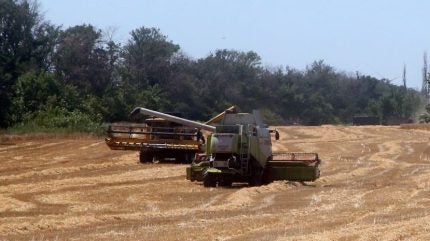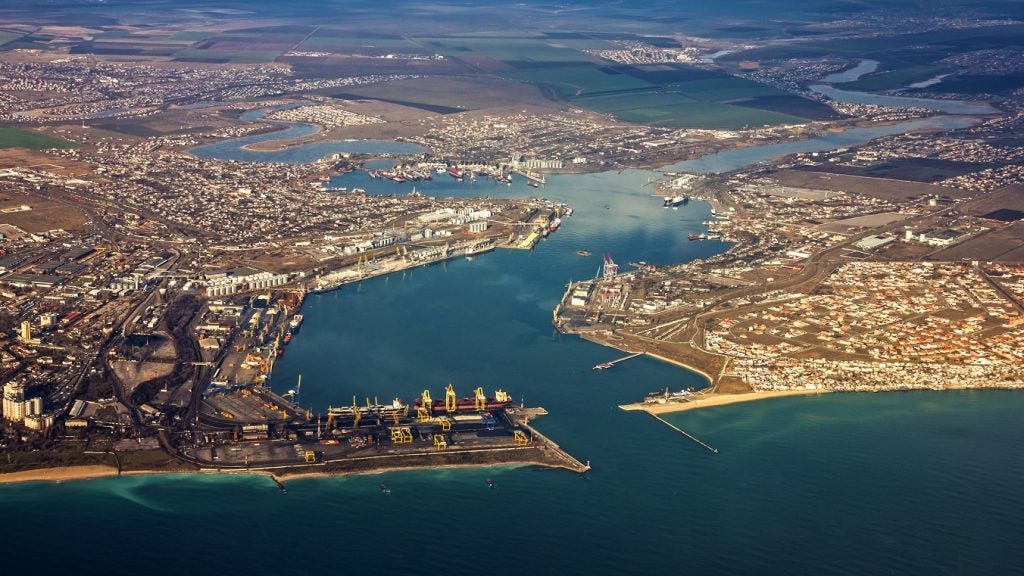
A report suggesting Ukraine and Russia were recently close to coming to an agreement to safeguard exports from the former’s Black Sea ports will have come as a surprise to many observers.
Russia had cancelled the previous agreement in July last year after a number of previous threats to do so.

Discover B2B Marketing That Performs
Combine business intelligence and editorial excellence to reach engaged professionals across 36 leading media platforms.
Moscow took the view it should no longer support the free movement of produce from Odessa and other ports while its own food and fertiliser exports faced serious obstacles because of sanctions and trade embargos linked to its invasion of Ukraine in February 2022.
It was feared that Russia’s veto would put an end to Ukraine’s ability to ship essential supplies of grain, especially wheat, fertiliser and oil to world markets including many emerging countries.
Months of negotiations
The situation makes it even more surprising that, according to news agency Reuters, a new deal to safeguard “grain corridor” exports was on the cards.
And to confuse things further, according to Reuters’ sources, it was Ukraine that scuppered that deal.

US Tariffs are shifting - will you react or anticipate?
Don’t let policy changes catch you off guard. Stay proactive with real-time data and expert analysis.
By GlobalDataThat near-deal was brokered, as was the previous agreement, by Turkey, with the support of the United Nations.
Russia and Ukraine had reportedly negotiated for two months via Turkey on a deal to ensure the safety of shipping in the Black Sea and reached an agreement on a text that was to be announced by Turkey at the end of March but Kyiv suddenly pulled out, Reuters was told.
The original Black Sea Grain Initiative was struck in July 2022 and carried on, despite Russian threats to curtail it, for a year.
Ukraine going it alone
Scuppering its resumption could perhaps mean Ukraine is of the opinion it can carry on shipping freight via the Black Sea without agreement with Russia.
It has continued to use the route even though Russia pulled the plug on the deal. But, and this is where it walks a tightrope, without a deal in place the risk was, and is, that merchant shipping could be targeted by Moscow as part of its war effort.
Last July, soon after the Ukraine-Russia deal was terminated, Russia mounted air strikes for several nights on Ukrainian ports and issued threats against Ukraine-bound vessels. One estimate suggested that, in 30 attacks, Russia caused $26.1m in damages to Ukrainian ports.
But despite those raids on port infrastructure and continued sabre rattling, as shipping news title TradeWinds asserts, Russia and Ukraine currently do nothing to directly attack maritime traffic in the region.
It reports that more than 1,000 ships have called at Ukraine’s Odessa ports since August 2023, when Kyiv set up its independent maritime corridor to replace the previous Russia-agreed scheme.
But there are still risks. Kyiv was forced to suspend shipping for a short time due to a possible threat from Russian warplanes and floating mines just days after committing to delivering almost 70,000 tonnes of grain to three African countries.
Attacks on ports
Produce is being shipped but the attacks on ports have impacted the country’s export figures.
Last month it was revealed by The New Voice of Ukraine that Russian attacks on infrastructure were likely to result in reducing Ukrainian grain exports to five million tons instead of the expected eight million tons in April.

But the ships carry on leaving the ports, risk or no risk.
However, at the same time, Ukraine has recognised the need to find other ways to shift its produce. Hence the overland route across the borders of its neighbouring countries to the west.
Unfortunately, those countries have not always rolled out the welcome mat for imports of goods that often undercut their own farmed produce.
EU members Bulgaria, Hungary, Poland, Romania and Slovakia have all, to varying degrees, complained that cheaper imports of agri-food products from Ukraine have hit their domestic farmers.
In a desperate attempt to stop individual member countries using uniltateral import bans, the EU has walked its own tightrope of defending member interests while supporting Ukraine’s attempts to keep its export industry alive and recognising the need for such exports to reach the west amid fears that commodity prices will rocket.
In March, Brussels came down on the side of its member states when it agreed to limit grain imports from Ukraine.
The bloc said it will grant Ukrainian food producers tariff-free access to EU markets until June 2025, a concession prompted by Russia’s invasion of that country in 2022.
The EU’s emergency brake
However, the European Parliament has extended an “emergency brake” for poultry, eggs and sugar and grain. This would lead to tariffs if imports exceed the average levels of 2022 and 2023.
Oats, maize, groats and honey have been added to the list of produce that could face tariffs and the European Commission said it would act within 14 days, instead of an initially envisaged 21 days, if trigger levels were reached.
The EU had first announced plans to curb exports from Ukraine back in January amid protests from farmers. Since then, the protests have become more intense, putting pressure on Brussels to act.
Ukrainian Prime Minister Denys Shmyhal welcomed the interim deal as “good news”, which suggests the EU has struck a balance that at least partly satisfies all parties for the time being.
Harvest issues
But there is another threat on the horizon. Ukraine’s Ministry of Agrarian Policy and Food is expecting the 2024 grain crop to be down by about 10% to 52 million metric tonnes this year from 58 million tonnes in 2023, mainly due to an expected smaller sowing area.
The ministry’s crop forecast shows Ukraine could harvest 27 million tonnes of corn, 19 million tonnes of wheat and five million tonnes of barley this year.
Poor harvest or not, it is crucial that Ukraine’s fragile two-pronged export approach continues for the sake of its economy which is having to support a war not of its own making.
But its need to move produce without facing Russian interference or EU member country resistance means the situation is likely to remain precarious for the foreseeable future.





